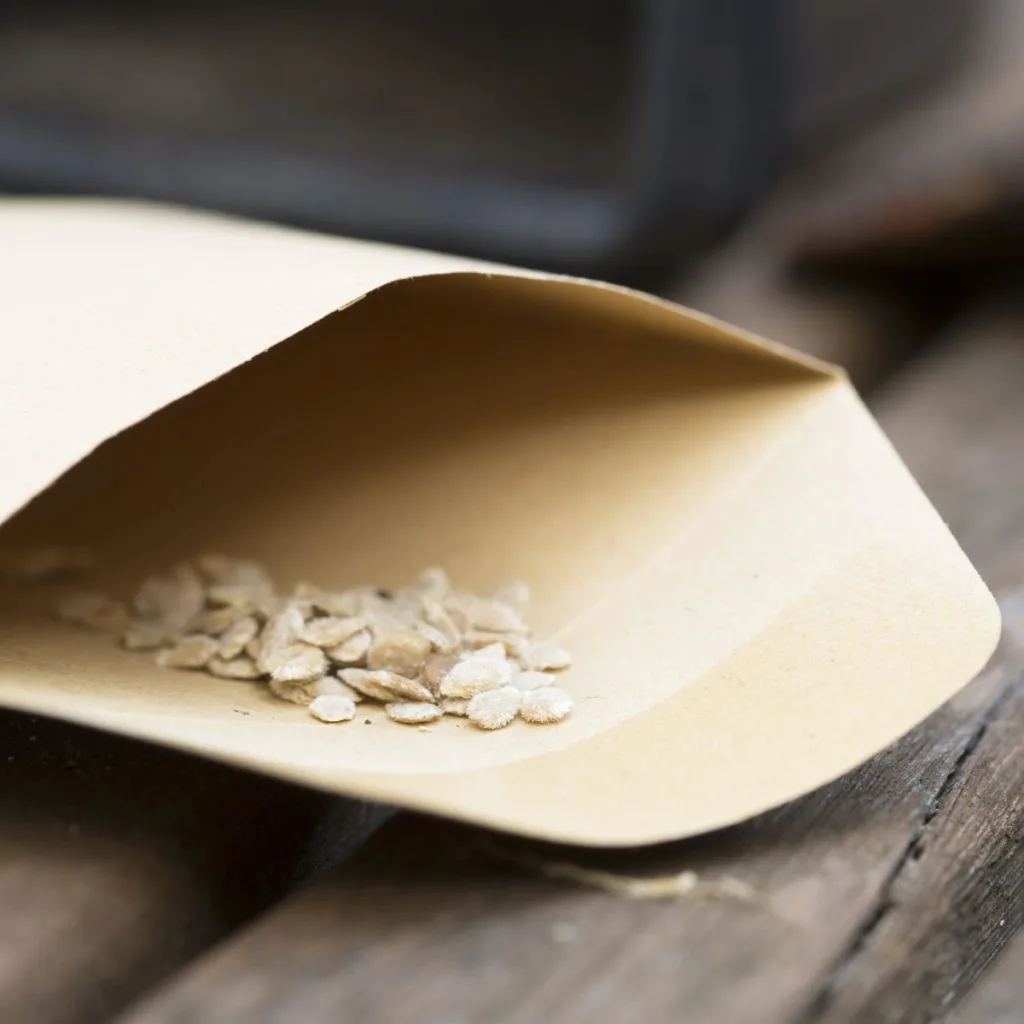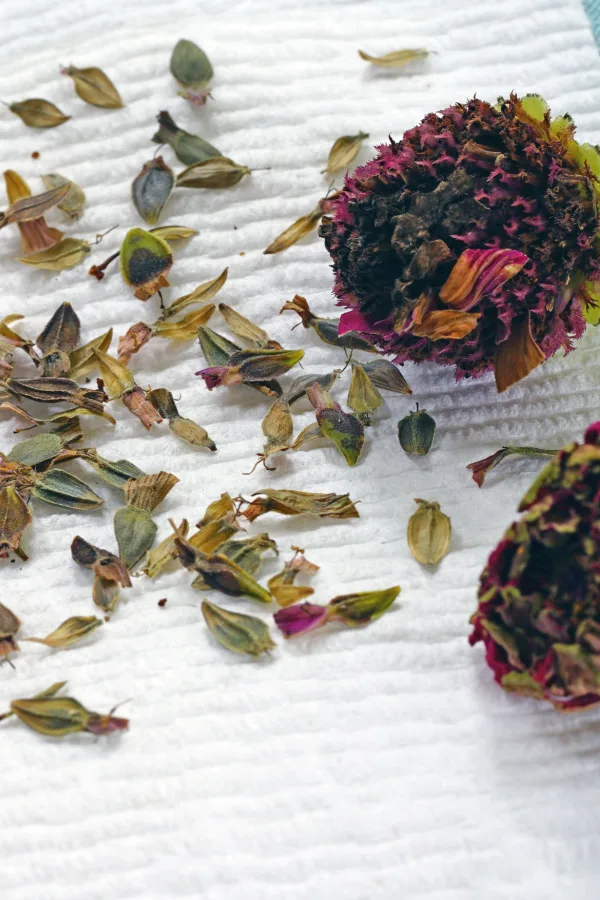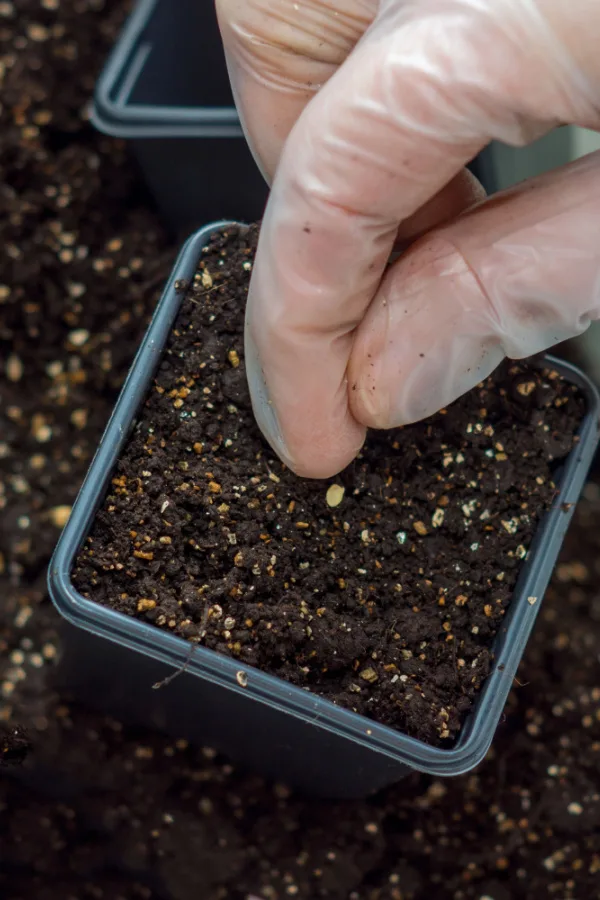Looking for the best way to store all of your vegetable and flower seeds this winter so they are fresh and ready to grow next year?
Whether you save seeds from your own plants or have leftover seeds from this spring and summer that you purchased from a seed company, when stored properly, most leftover seeds can be perfectly good for more than a single year. In fact, in many cases, for even three or more years!
Not only can purchasing new seeds every year be frustrating when you can’t find the right varieties you need, it can also be incredibly expensive as well. Many seed packets now run upwards of $3 or more. It can certainly make it pretty tough on the budget having to replace them every year.

But here is the real problem – many gardeners who have tried to save seeds in the past get frustrated when the seeds don’t perform well. And because of that, they shy away from trying to keep them from year to year.
The good news is that saving seeds isn’t difficult in the least. Nor does it have to take up a lot of space. Success really comes down to simply saving them in the right location – and keeping them away from a few conditions that can make them go bad.
The Best Way To Store Vegetable & Flower Seeds Over Winter
One thing is for sure, when not stored properly, seeds can and will go bad. There are actually two main issues that affect seeds – heat and humidity. And when present, they can spell big trouble for a seed’s ability to germinate later on.
Excessive heat can damage the seed’s outer protective coat, which can end up dehydrating seeds. Also, in some situations, high heat can cause higher amounts of humidity which will also damage seeds.
High levels of humidity are actually the most likely of the two issues to cause problems. If you keep seeds in a damp or moist environment, they tend to spoil quickly. Why? Because extra humidity will push the seeds to attempt to germinate, which damages their seed coat. However, since there isn’t any soil or light, the seeds just end up spoiling and going bad.

Keeping Seeds Dry – The Best Way To Store Vegetable & Flower Seeds Over Winter
First things first, seeds have to be totally dry before storing. For seeds that you purchased in packets, this is rarely an issue.
However, if you are saving seeds from your own heirloom crops, it’s vital to make sure that the seeds are completely dry before storing. See our article: How To Save Mum Seeds – Grow Your Mums For Free Next Year From Seed!
Always lay out seeds you are saving in a dry place for a few weeks before storing. And when storing, you can also place some dry rice in the packet to wick away any moisture that might be left. Another great alternative is to store seeds with the silica gel packets that come in new shoe boxes.
Choose Your Container – The Best Way To Store Vegetable & Flower Seeds Over Winter
Any container that completely seals will usually work well for storing seeds. You want to make sure the container will keep not only excessive moisture out but also pests like mice and insects.
You should store seeds in their original seed packets if possible. This not only makes it easier to identify seed varieties but also keeps the planting instructions as well. If you don’t have a seed packet, it’s best to place seeds in a sealed envelope or brown paper bag and label with the name, date and any other important information.

Storage Options – The Best Way To Store Vegetable & Flower Seeds Over Winter
Thankfully, there are many different ways that you can store your seeds properly that are not only easy to find but inexpensive as well.
Some great examples of simple storage containers include freezer resealable plastic bags, glass canning jars with lids, empty clean medicine bottles or spice containers, or even plastic food containers.
A great alternative is using a plastic photo box to store extra seed packets. The clear separate containers allow you to easily see and organize seed packets.
Since the smaller containers can be individually sealed and then sealed within the large container, they help to keep out excess moisture and other problems. Affiliate Product Link: Transparent 4″ x 6″ Photo Case and Clear Craft Keeper with Handle
Where To Save Seeds – The Best Way To Store Vegetable & Flower Seeds Over Winter
Seeds that have been properly dried need to be saved in a cool, dark, and dry location in order to keep vitality. A cool closet, garage, or even a dry space in your basement works great.
You can even store your seeds in a deep freezer to prolong their shelf life as well. The cool temperatures and lack of moisture make it the perfect location for air-tight storage containers. Just make sure to use freezer varieties of products if available.

When it comes time to use your freezer-stored seeds, make sure to let the seeds come to room temperature before planting. Avoid places that have excess moisture such as damp basements, cellars, or barns and sheds.
Checking Your Seeds For Germination – How To Store Extra Seeds
To check the vitality of the extra seeds you save, you can do a simple germination test before you plant in the spring.
Dampen an entire paper towel, and spread 6 or so seeds on the bottom half of the paper towel. Fold it in half and place it into a resealable plastic bag. Keep the resealable plastic bag in a warm location and try not to disturb it.
Check the packet daily to make sure the paper towel stays moist. A spray bottle works perfectly to mist the paper towel without soaking it. After a few days, most seeds should start to germinate. If all fail to germinate after 14 days, the seeds should not be used.
Here is to saving seeds this winter, and to saving on your gardening budget too!
Simple Garden Life
Follow Our Facebook Page For Even More Great Tips! Simple Garden Life Facebook Page
Simple Garden Life is a website dedicated to keeping gardening fun, simple and enjoyable! We publish two new articles each week along with a new garden podcast episode every two weeks. This article may contain affiliate links.
